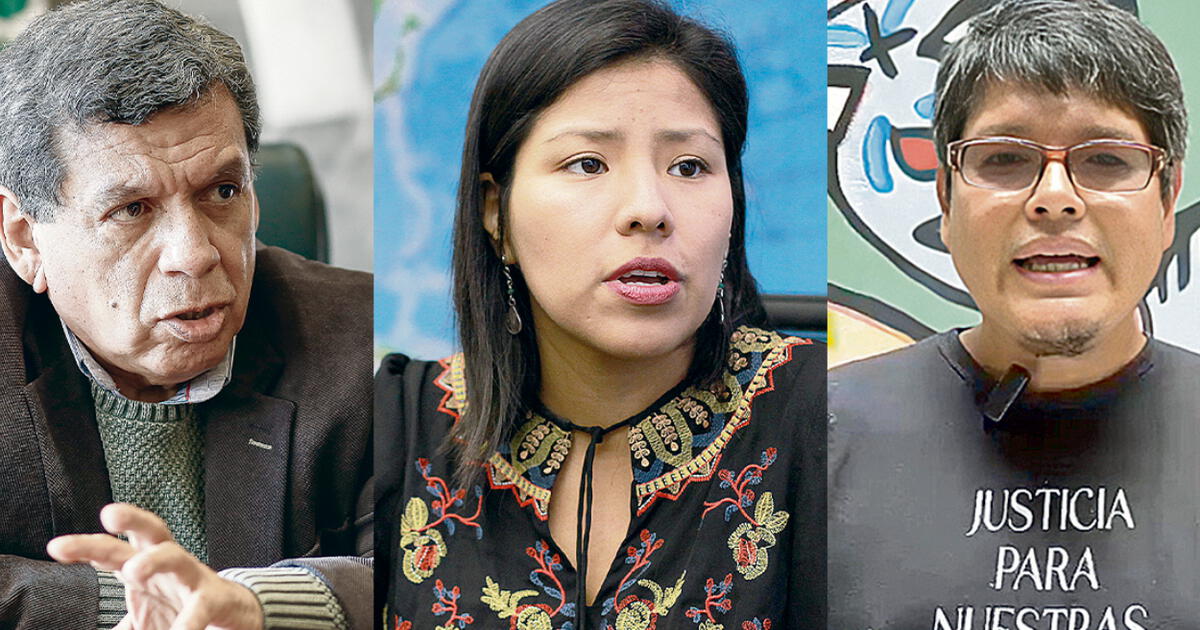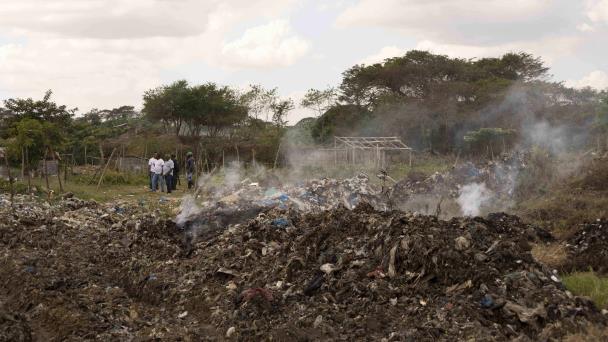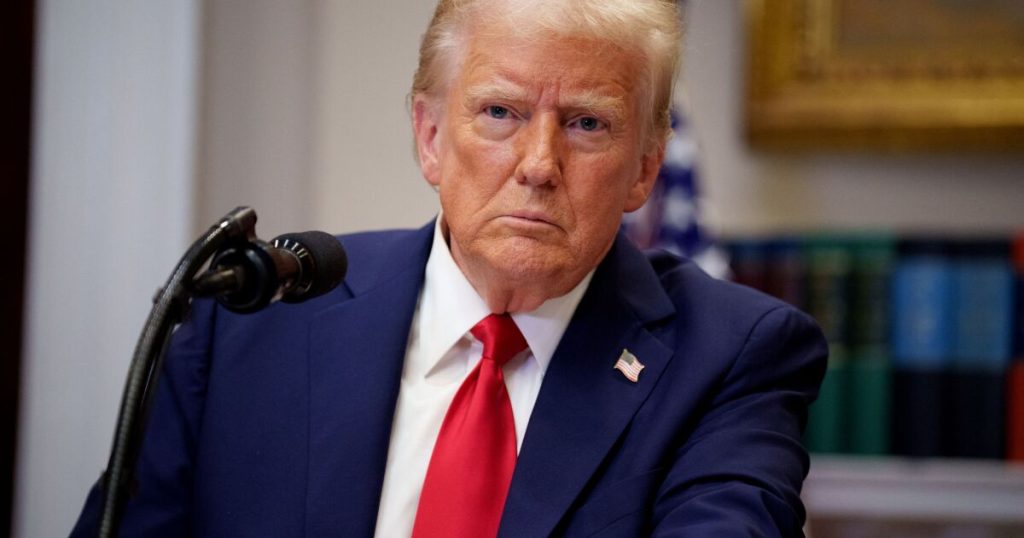Slowly, without much media attention, the left is mobilizing. A group of female leaders (Congresswoman Ruth Luquethe former congresswomen Indira Huilca, Rocío Silva Santisteban, Marisa Glave and the former premier Mirtha Vasquez) has already organized two popular dialogues, in Lima and Cusco, with leaders of Nuevo Perú, Ahora Nación, Primero La Gente (PLG) and the Workers and Entrepreneurs Party (PTE Perú), as well as with representatives of social organizations. And they are preparing the third meeting, in the Piura region.
The general secretary of Nuevo Perú, Enver León, confirms that there is important progress with Ahora Nación, where the presence of the rector of the UNI stands out, Alfonso López Chau.
Also, Nuevo Perú strengthens agreements with the PTE Perú, a group supported by Patria Roja and which includes Napoleón Becerra, Arturo Ayala del Río, Nilver López and Soledad Lozano.
Likewise, New Peru, of Veronika Mendozawas still in dialogue—at the close of this information—with the centrist Primero la Gente, with Marcos Antonio Zevallos as the contact in the negotiations. But the resignations of Susel Paredes and especially Flor Pablo, who has said that there are militants with “bonds of trust” with the Boluarte Government, who could stop the negotiations.
Another sector of the left tries to group together Castilian sectors. The Movement for the Unity of the People (MUP), whose national coordinator is the former minister Hernando Cevallosalready talks with the former minister Anahi Durand (Adelante Pueblo Unidos, APU) and former Castilla Prime Minister Aníbal Torres; and also has dealings with Todo con el Pueblo, whose general secretary is Nicolás Bustamante.
Together for Peru, by Roberto Sánchez; Voices of the People by Guillermo Bermejo; Guido Bellido’s Pueblo Consciente, the latter two in the registration process, are also advancing deals regarding the electoral process.
Certainly, political dialogues are taking place, but, as the analyst indicates Alberto Adrianzen“politics is not just conversations, it must be effort, and at this moment there is no left-wing party capable of forcing unity.”
Adrianzén, skeptical of possible unity, believes that the left today is not settling its differences and is only preparing to do so at the electoral level. “I don’t see any joint action, beyond rapprochement. There is no clearly unitary policy, there is no one who says I want to unite with so and so. I still don’t see a unified spirit on the left. Popular dialogues are important, but they (the promoters) do not have a party. How are they going to go to the elections?”
Among the left-wing organizations already registered are Together for Peru, Ahora Nación, Nuevo Perú, Voces del Pueblo and two that those consulted for this note agreed in pointing out are not left-wing, ANTAURO and Perú Libre, for “co-governing with the right”. In the registration process are Adelante Pueblo Unidos, Pueblo Consciente, Unidad Popular de Duberlí Rodríguez, Todo el Pueblo and MUP.
The majority of these organizations agree that it is possible to unite if group ambitions are put aside, which usually affect these processes as occurred in the failures of UIthe Frente Amplio or JP, which brought together several left-wing organizations.
Hernando Cevallos (MUP): “If personal appetites are overcome, unity is possible”
What do you expect from this pre-electoral year for the left?
We are looking at ways to build alternatives that respond to people’s expectations. Everything will depend on how the progressive forces align themselves, so that they do not only see their participation as a purely electoral issue.
Do you think a great left front can be created?
It’s a necessity. There is a discredit, at least, of the right-wing forces in Congress. People want substantial changes, but they need to believe that those who raise these flags are going to make it a reality, far from personal conveniences.
Much fractionation is seen on the left.
There are progressive sectors, a little closer to the center. And there are sectors that continue to raise the flags of profound, constitutional changes in the country. If the options for change are combined, personal appetites are overcome, a left-wing candidacy that wins the elections is feasible.
Who is the Movement for the Unity of the People (MUP) closest to?
We have been talking from our political position. On the one hand, there are the sectors that have been closest to Pedro Castillo, with Adelante Pueblo Unidos, Todos con el Pueblo… And on the other hand, we have very good relations with Nuevo Perú, Together for Peru… We hope that the need to build a serious front, capable of creating confidence in the people, prevails.
Do you think it is possible to get closer to the political center?
The first thing is to consolidate a left front. There are progressive sectors that do not share our points of view, but the most important thing is to see if we reach a point that does not disperse us in an electoral and political project. As the left, we do not think that we should move to the center. The center must be aware that in this country there are millions of Peruvians who have voted for profound transformations. Those who think that since the Castillo government was given a coup d’état, we must now go to a center government are wrong. There we run the risk of the right winning over a left fearful of making changes that the country needs.
Can ideas like Castillo’s freedom or the new Constitution prevent unity?
Saying that we can change this country without changing the Constitution is lying to the people. Regarding the freedom of Pedro Castill, we may like it or not, but is it fair that he is incommunicado for two years? We think he should be free.
In the unit, would the candidate be Verónika Mendoza?
It doesn’t seem to me that today candidates should be closed or that there should be vetoes. A process of sincere rapprochement must be opened, putting social interests and not group interests first. All left-wing parties, with registration or on the way to it, do not have enough weight to say that they are the authorized voice of the people. We cannot assume representation of the people. That is why it is very important to put aside this issue of it’s my turn, I am more representative than the other, and put unity first. Afterwards, whoever it is will be decided, internally or by consensus.
Indira Huilca (Colectivo En Movimiento): “It is essential that the left unite not only for elections”
A meeting was recently held with Nuevo Perú, Ahora Nación and the PTE. Do you think that there is a possible unity going there?
Yes, with some colleagues we are promoting spaces in different regions. They are called Popular Dialogues for True Democracy. They are spaces in which we have been bringing together parties such as Nuevo Perú, Ahora Nación, Partido de los Trabajadores y Emprendedores (PTE), we also invited Primero la Gente and leaders of social organizations. This type of space is necessary, first, to listen to each other. Because there is so much political dispersion, there are more than 30 registered parties, but they are not listened to; The second thing is to look for points of consensus, it is not just coming together based on acronyms or faces or names, but based on specific topics. It cannot be that in the face of this dispersion there is no initiative to articulate in a single front at least those who have greater programmatic coincidences.
Is a large left front really possible for the 2026 elections?
I believe that it is possible and necessary for the left to articulate itself. It is essential that democratic left groups can unite not only electorally, but also to confront this authoritarian coalition that is governing the country from Congress.
What characteristics should the leftist candidate of 2026 have?
The person who aspires to represent us must be clear that today we are not living a democracy, right? It is time to rebuild and reorganize many things in the country. There are things that have been destroyed, rights have been trampled, the Constitution has been changed at the whim of certain groups, people have been repressed and murdered. That it is a person who meets the conditions to be elected in a relatively democratic process. I hope there can be a primary election because there are several parties. We must find a way to resolve this situation with a democratic mechanism.
Should Verónika Mendoza be the candidate?
She is part of a political organization and I think that, more than putting names forward, it has to be a person who is capable of meeting characteristics and going through a primary election as has happened before. And that it promotes a process of articulation so that not only parties, but also other initiatives, allow us to build a front.
Are there possibilities of dealing with people from the political center?
Look, I hope there are levels of dialogue to address these points… I think that those of us who feel on the left have to look for the articulation of the left. I hope there is an understanding that we are not living in a very democratic situation. And you can’t wash that off with warm water, right?
Enver León (Nuevo Perú): “In February we will decide the pre-candidates for the electoral front”
Is it possible for a left front to become a reality?
Everything is possible. We are in talks right now with various political forces, we understand that there is a deadline until June and we have a few months to continue talking. Right now we are talking with Ahora Nación, the Workers and Entrepreneurs Party, and with Primero la Gente, who are the core, who are the ones we have been talking about for some time, right?
There is another sector, the Movement for the Unity of the People (MUP), where Hernando Cevallos is, who views with sympathy dialogue with Nuevo Perú.
Yes, with Hernando Cevallos we have good dialogue, good relations. We have not sat down to discuss in more details, but it is a possibility; Furthermore, we share many ideals and programs and there would be no problem with that. We agree with Hernando.
The MUP asks for the freedom of Pedro Castillo, other parties ask for a new Constitution. Are there postulates that could hinder the unity of the left?
All parties have postulates according to their program and the debate in their organizations. All these postulates are put forward in a discussion with the other political forces and finally we must have a minimum program that brings us all together. We can’t leave aside our proposals either, right? Political maturity will tell if we advance or not. We do believe in a change in the Constitution. It is our position as New Peru. We believe that it is no longer even the Constitution of ’93, but that of 2024. More than 50 articles have changed. We consider changing it and we will put it up for discussion at the unity table that we are officiating.
Are they going to defend Verónika Mendoza’s nomination?
We have a National Council at the end of February and there we will formally and publicly decide who will be our pre-candidates in this electoral front in which we are participating. This must be the route to, in a mature manner in the face of the crisis, converge with various political forces and become a government.
Is the front left or will they ally with the political center?
It is not necessarily a left front. What we do believe is that it must be a front of change, that disrupts what we are experiencing. Because it is a crisis of the model, it is not a crisis of people or management. There is a deeper problem that goes beyond the left or the center, I would say it is the citizens, the democratic.
Would Perú Libre, Antauro or the people of Boluarte have a place on a left front?
The positions of Perú Libre and Antauro Humala take us quite far from the change we require and the genuine unitary process we want to develop. Obviously, with Boluarte there is no type of rapprochement, he has committed treason, he has massacred the Peruvian people, he has worked with the extreme right in this government that reaches 2% approval… That backpack is carried by Fujimorism, not by the people who voted for a change.
















